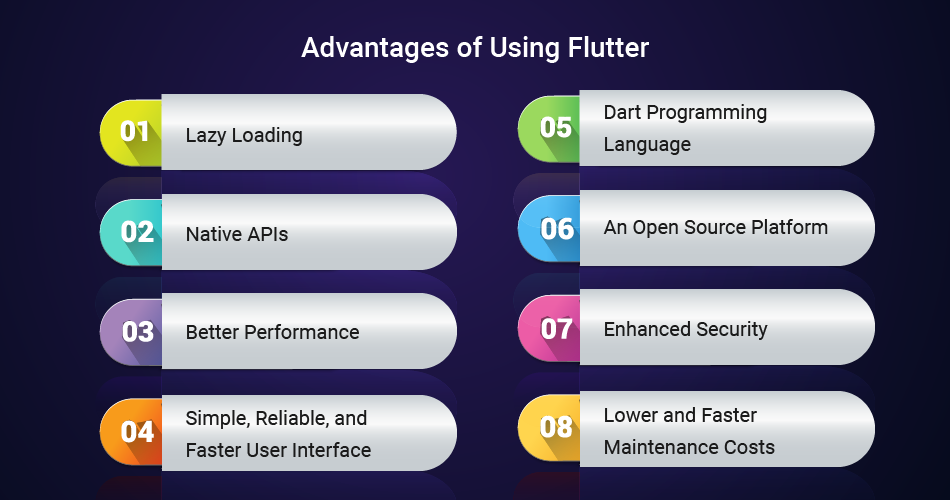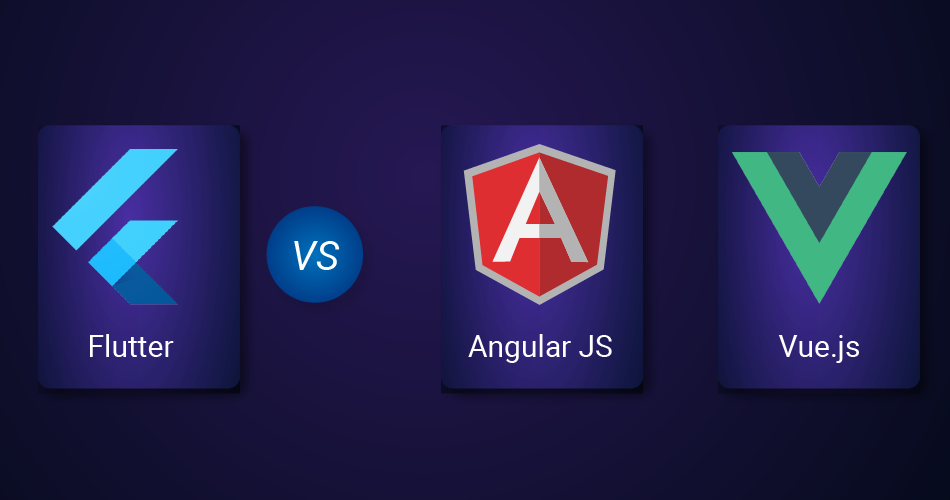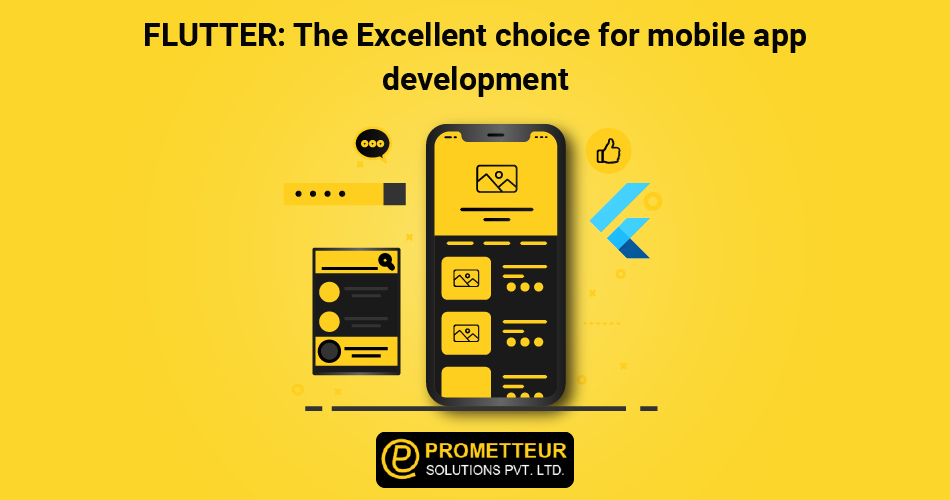Why Flutter Development is the Best
Developing native platforms is time-consuming and can cause compounding headaches when it comes to testing the mobile app development on different platform combinations. You want your users to experience your app in the best possible way, no matter what device they’re using. And you want a tool that saves you time and equips you with a robust ecosystem. But you also want good performance – no one wants a laggy app – and writing one from scratch isn’t always feasible.
Flutter brings native mobile development to the next level by combining the power of native mobile platforms with an intuitive UI, making it easy to create beautiful apps without all the coding headaches previously associated with cross-platform development.
Flutter is a platform that enables developers to create native apps for both Android and iOS. It is used with Dart, a programming language, and it allows developers to design the app once and then deploy it to both platforms. It is excellent for creating seamlessly working Mobile App Development that can efficiently handle large numbers of users at the same time without any lag or glitch. With Flutter, it is easier for developers to create apps on multiple devices with one codebase rather than using separate codebases.
Flutter has been gaining popularity as a front-end development framework for mobile applications for Android and iOS. It is supported by Google, and this means that they invest in its evolution and contribute features back into the project. Its open-source nature means anyone can contribute to the project. The Flutter community is one of the largest among other programming languages of the world.
Why Flutter is the Future of App Development
Flutter enables the development of modern Mobile App Development that not only look good and perform well but are efficient, fast, scalable, and secure. With Flutter, the developer can easily design, build, test and deploy the app to both Android and iOS without any technical difficulty.

Using Flutter, it becomes easier for developers to integrate different widgets and then reuse them on different devices. It also allows developers to create widgets that work seamlessly with other Mobile App Development and create a platform that is both fun and a product. With Flutter, developers can easily integrate different widgets and then reuse them on different devices. It also allows developers to create widgets that work seamlessly with other apps and create a platform that is both fun and a product.
Building the Best Cross Platform Mobile App for Your Business with Flutter
Flutter was initially introduced at Google I/O in 2014. Since then it has been gaining popularity among developers. Its potential is highly appreciated by them. By using Flutter, developers can easily build apps that are simple to use but powerful and usable on different platforms. The platform was built to enhance the existing cross-platform functionality to speed up development and app delivery.
Cross-platform mobile applications give businesses an edge in the marketplace because both Android and IOS developers can easily access the Mobile App Development. This means the business would automatically be able to accommodate these users without the need to develop two separate apps for different operating systems. Surely, this allows for a larger number of visitors, customers, and a high percentage in the ROI of the business.
Flutter is a mobile app development framework that works for both iOS and Android. It has some significant features which make it a great choice for cross-platform app development. Flutter provides the developer with the ability to create apps using one coding language. This eliminates the need to learn Swift and Java separately, as well as the need to write code twice (once in Swift and once in Java).
Advantages of Using Flutter
Here are some of the benefits of using Flutter:

1. Lazy Loading
A critical feature in Flutter is not often implemented in other platforms. Lazy loading is one of the key features that Flutter has. In a nutshell, the concept of lazy loading is about making the initial loading of an app as seamless as possible. This means that the initial data structures, widgets, etc. don’t have to be downloaded or made available in the initial loading state. Instead, they will be loaded as the app is being loaded. For instance, once the app is loaded and the user starts interacting with it, Flutter is able to fetch these necessary objects and make them available to the user. This way, Mobile App Development startup time is significantly reduced. With Flutter, we can make apps load faster even though they have a huge amount of data.
2. Native APIs
The way you access native functionality and state is not the way you are used to accessing those services and resources. Flutter provides you native access to all the native features that you are used to. It also provides you access to libraries that will help you develop your app faster.
3. Better Performance
One of the main advantages of using Flutter is better performance. It is used to enable devs to quickly develop Mobile App Development as the platform uses Dart. It is less CPU-intensive than native iOS or Android apps. These issues mean you will be able to create a faster app that will handle large numbers of users easily. If you develop a high-performing app, you will be able to save a lot of money on the development of the app.
4. Simple, Reliable, and Faster User Interface
Users tend to prefer apps that look good and give a better user experience. Flutter provides apps with a pixel-perfect user interface that looks smooth and vibrant at all times and fits perfectly on any device.
Flutter provides better graphics, animations, and simplified touch animations than other android and iOS frameworks. Developers can create sleek, beautiful, and intuitive UIs with their Flutter apps. There is no need to develop native code for use on both platforms as there are no layout constraints. The developer can simply use UI widgets on both platforms, whereas, for other frameworks, they need to develop both the code for one platform and produce an app for the other. This results in more time and a better user experience. Flutter also provides cross-platform support with cross-platform development tools. Thus, developers can develop their Mobile App Development for multiple devices using a single codebase. Developers can leverage the native performance of both platforms.
In essence, Flutter provides you with first-class support for developing apps for both Android and iOS platforms.
5. Dart Programming Language
Flutter is built with Dart Programming language which is a high-level, statically-typed, object-oriented programming language that is used to build high-level, component-based UI and UX applications. With Flutter, you don’t have to learn the language. It helps developers write simple code and thus can handle more complex systems easily. It is super-fast, cross-platform, and scales to big apps easily. It also supports interoperability between Windows and Mac OS. Flutter allows developers to write more accessible, understandable code with the help of Dart’s high-level language.
6. An Open Source Platform
Unlike other apps, Flutter is an open-source platform where developers can contribute and it will become an integral part of Android Oreo SDK. Developers will have the opportunity to not only create Mobile App Development but also develop many features that would make the app more innovative. Developers can also extend the base layer to implement many features as well.
7. Enhanced Security
Flutter allows a developer to deliver a secure and efficient app by combining mobile device features such as battery optimization and location awareness. Security is the first thing that a consumer is concerned about when he/she decides to go on app purchase. After having a positive experience with Mobile App Development, he/she wants to know that they are using a secure platform. This is where Flutter’s User and Entity Authentication feature comes in handy. Flutter ensures that a user will only be authenticated to apps that he/she approves through one simple touch.
8. Lower and Faster Maintenance Costs
Developers can easily change and upgrade their code for faster apps that easily handle the loads and make use of the device’s resources without any problem. It is an open-source tool that allows the developer community to contribute and collaborate.
Flutter VS Other Programming Languages
With Flutter, developers do not have to set up the development environment manually and it supports web technologies. It includes a large number of awesome features such as code import, code compilation, code linting, code linting automation, code clean, code linting deployment, and unit testing along with Google Test.
Flutter vs React Native
Flutter is a JavaScript framework for developing applications on the Google Dart language. React Native, on the other hand, is a JavaScript framework developed by Facebook to create native apps for iOS and Android.
For the last few years, React Native has been the best choice for cross-platform Mobile App Development. It’s a JavaScript library that provides a really good user experience and benefits from a large community of developers.
But in 2018, Google released its Flutter framework and it is quickly becoming the standard go-to for cross-platform Mobile App Development. Flutter allows you to build high-performance native apps, on both iOS and Android. The framework is written in Dart, which is Google’s own programming language. It features an excellent IDE with all sorts of functionality such as autocompletion and inline documentation on methods used in the code.
Flutter vs Angular JS and Vue.js:

Flutter was developed to compete with both Angular JS and Vue.js. AngularJS has gained huge popularity in recent years. Vue.js also provides similar functionality to create native apps with code and does it in a way that the code is easy to maintain. Flutter was built to be a faster and more streamlined programming language than Angular JS and Vue Js so it performs better any day, anytime.
Flutter VS Android Studio:
There are a lot of similarities between the two, but Flutter is a cross-platform software developed by Google. It can be used for developing mobile apps for iOS and Android.
Flutter has already created many buzzes in the industry due to its high performance and cross-platform compatibility. Developers who want to build Mobile App Development with native functionalities can now use Flutter to do so.
The team at Google is continuously working on making the user experience better with every release. It has also introduced an IDE specific for developing Flutter apps which makes it easier for developers to work with this specific framework.
Conclusion
Developing mobile apps is expensive and time-consuming and building the best mobile app that works on different platforms without compromise for excellent user experience is not easy to achieve. There are over 2 million mobile app developers in the employment market, each with their own skills and expertise but it is Flutter mobile app developers that usually stand out from the rest. Flutter gives you the ability to design and develop hybrid apps for both iOS and Android at a fraction of the cost and time required for native app development.
